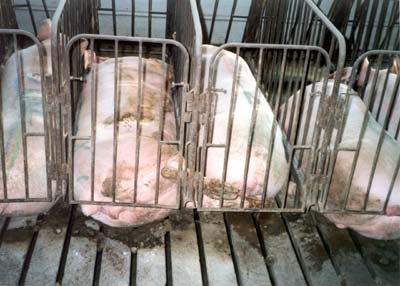
Food Without Thought
.
Mirrorism is about broadening the spyhole view of the mainstream to a more comfortable fit. We seek to add layers to the one dimensional and find/create more accurate representation based on real life. But there are times when we the addressee not only accept the restricted view but prefer it, for example promotional literature. Logically, we know that the majority of it is at best an exaggeration and at worst an out right lie and yet we allow ourselves to believe it because we want what it promises. It's more than a product, it's a ready made image, a lifestyle, a hope to in some way improve ourselves and our lives. But so what? Apart from being a little out of pocket, where's the harm? That's the question we need to be answering.
Promotional literature has done a fantastic job in defamiliarising the food industry. Meat is presented in such a way that it is disconnected from the animal from which it came. Words like, farm fresh, organic, and free range are used to help promote the idea of an ethical lifestyle, they also create a rose tint illusion of old fashioned community over vast industry production. But in reality consumer understanding of the those words and the industries use of them don't always match. Should we be angry at the industry when these terms are misused? Of course, but we should also hold ourselves accountable for passively accepting what we know is a form of promotional literature as a 'truth'. It is our responsibility to go beyond the promo to the independent reviewer/researcher in order to find the reality.
Our accepted passivity not only opens us up to abuse but when it's coupled with our willing ignorance we provide the perfect conditions for atrocities to occur within the meat and dairy industry.
We are killing on average 1 billion animals a year in the UK alone and many are treated with abject cruelty before they even reach the slaughter house. Animals are kept in such crowded conditions that they become aggressive and bite and peck at each other. The response is not to provide more space but to pull teeth and cut off beaks without anesthetic. Stunning procedures which precede slaughter are sometimes ineffective and in an average year there is the potential for over 12,000,000 animals to be slaughtered whilst fully conscious.
The following footage shows the reality behind our ignorance. It's deeply upsetting and difficult to watch. If you choose to hit the stop button remember that you are executing a right that these animals don't have.
https://www.youtube.com/watch?v=IVGR1N2Pl00
To claim ignorance is unacceptable. We may not have been familiar with the details but we are aware of the competitive nature of the food industry. We understand it's a business driven by the need for profit. We know that when we are offered such low prices that costs are being cut elsewhere and it's often the animals that suffer. Yet we claim ignorance under the pretence of innocence because we don't want to ask ourselves difficult moral questions that may affect our convenient lifestyles. To point the finger and blame the meat and dairy industry is to relieve ourselves of responsibility. It is our chosen ignorance, our demands that has shaped it and every time we buy cheap meat we cast our vote in favour of it. Regardless of whether you are a vegan or a meat eater it is our collective responsibility to ensure better living conditions and slaughter house practices. Simple adjustments to our own lifestyles could make a world of difference to theirs. We have the power to end their suffering we just have to care enough to do so.



'If you don't like pictures of animal cruelty being posted on social media, you need to help stop the cruelty, not the pictures. You should be bothered that it's happening, not that you saw it.'
Milan Kundera